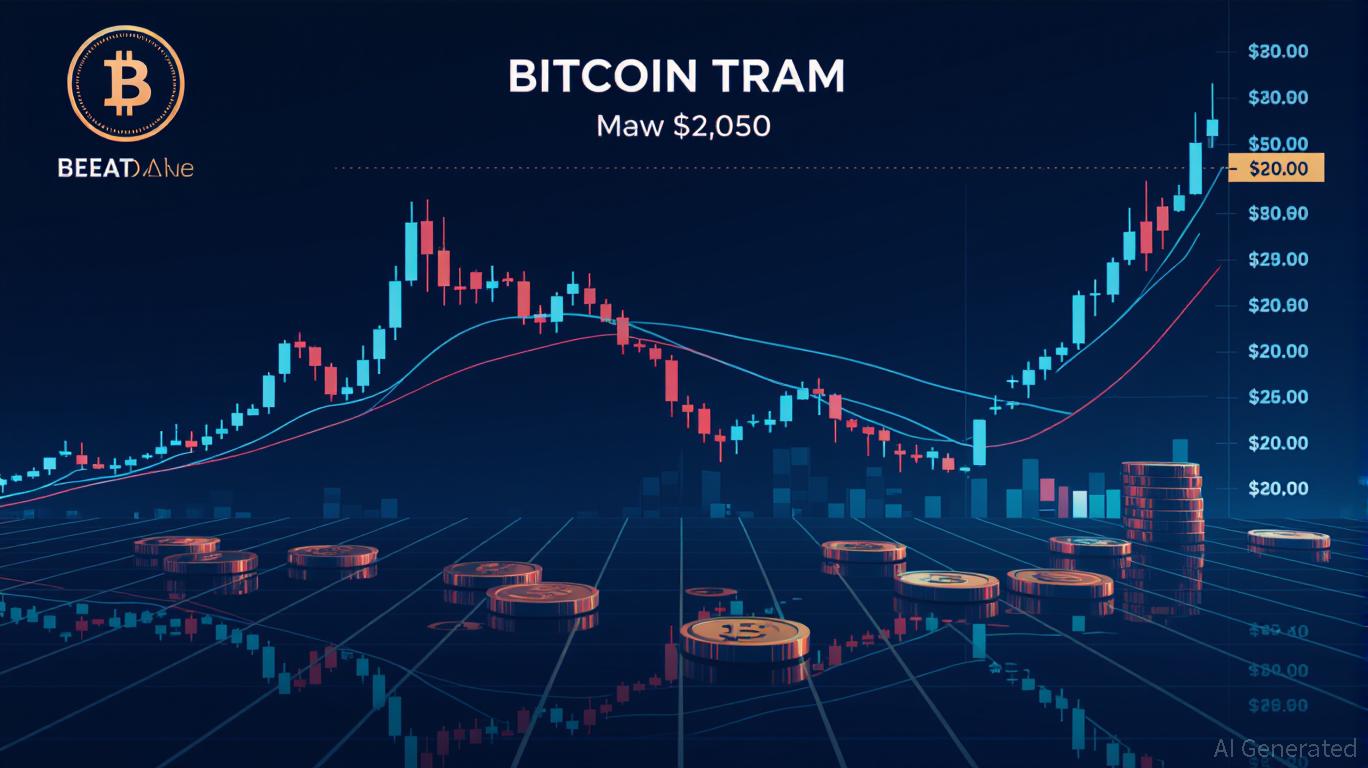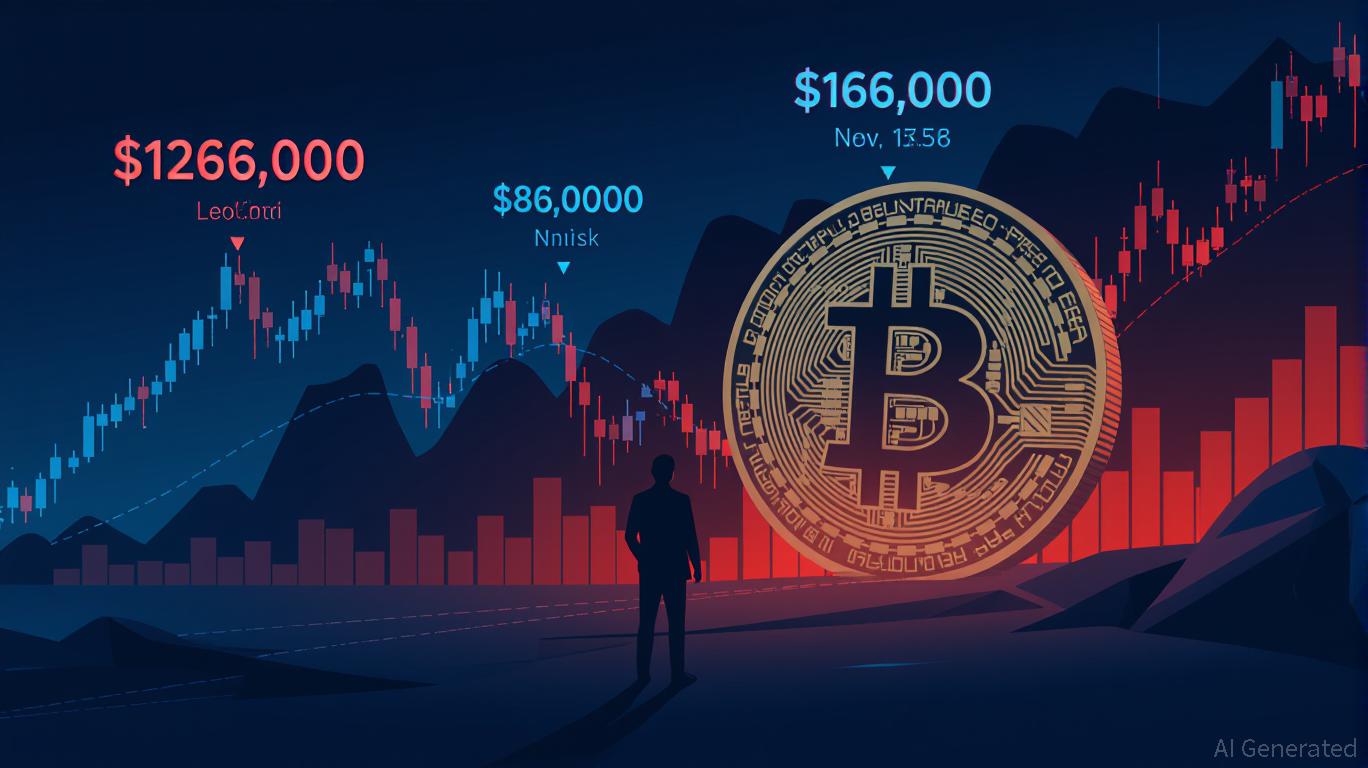Bitcoin Updates: U.S. Suggests Using Bitcoin for Tax Payments to Dominate Worldwide Digital Economy
- U.S. Rep. Warren Davidson introduced the "Bitcoin for America Act," allowing Americans to pay federal taxes in Bitcoin and creating a Strategic Bitcoin Reserve. - The bill cites Bitcoin's fixed supply and long-term appreciation potential, aligning with corporate strategies like Michael Saylor's $48.37B BTC holdings. - It aims to counter global competition from China/Russia while balancing risks like BTC's 30% price drop from its August peak. - Proponents argue voluntary BTC tax contributions could build
A new piece of legislation introduced in the U.S. House of Representatives, known as the "Bitcoin for America Act," proposes to let Americans use
The legislation claims that Bitcoin’s capped supply of 21 million coins makes it a more reliable store of value over time than traditional fiat money, which can lose value due to inflation. By making it possible to pay taxes in
The initiative coincides with increasing institutional interest in Bitcoin, as seen with Michael Saylor’s company,

The Bitcoin for America Act is also a response to international competition. Reports indicate that countries such as China and Russia are accumulating Bitcoin, motivating U.S. lawmakers to act to maintain competitiveness. Davidson’s proposal offers a compromise between previous plans, such as Sen. Cynthia Lummis’s (R-WY) $80 billion Bitcoin acquisition proposal and Rep. Byron Donalds’s (R-FL) budget-neutral accumulation approach. By permitting voluntary tax payments in BTC, the bill
The Bitcoin Policy Institute, which backs the legislation,
While skeptics may doubt the feasibility of paying taxes with such a volatile asset, advocates argue that the bill’s voluntary approach and emphasis on long-term value help offset short-term risks. As the discussion continues, this proposal signals a broader movement toward integrating digital assets into national policy—potentially transforming the U.S. economic landscape in the digital era.
Disclaimer: The content of this article solely reflects the author's opinion and does not represent the platform in any capacity. This article is not intended to serve as a reference for making investment decisions.
You may also like
Revolut Connects Conventional and Decentralized Finance, Achieving $775M Milestone on Polygon
- Revolut processed $775M in crypto via Polygon by November 2025, marking a key milestone in mainstream blockchain integration. - The partnership enables zero-fee stablecoin transactions and POL token staking for 65M users in the UK/EEA, leveraging Polygon's Rio upgrade for 5,000 TPS. - Revolut's MiCA-compliant Crypto 2.0 platform now supports 280+ tokens and zero-fee staking, aligning with its $75B valuation and Web3 expansion strategy. - Analysts highlight the collaboration as infrastructure for scalable

Bitcoin’s Abrupt Price Swings: Uncovering the Triggers Behind the 2025 BTC Downturn
- Bitcoin's 2025 crash below $90,000 stemmed from Fed tightening, institutional selling, and exchange disruptions. - Whale-driven BTC outflows (63,000) and $3.79B ETF redemptions amplified market panic amid low staking yields. - Exchange halts and lingering FTX trust issues worsened liquidity, while MSTR's 60% stock drop highlighted macro risks. - Analysts see long-term stability potential through institutional adoption, but delayed CLARITY Act and Fed policy uncertainty persist.

Bitcoin’s Latest Downturn: Understanding Macro Risks and Changing Institutional Attitudes in 2025
- Bitcoin fell below $86,000 in Nov 2025 due to macroeconomic headwinds, institutional shifts, and regulatory changes. - The Fed's hawkish pivot increased leveraged crypto costs, triggering de-risking and cash flows. - Leverage-driven liquidations and regulatory shocks exacerbated Bitcoin's volatility and selloffs. - Regulatory tightening and Japan's Nomura entry highlight evolving compliance and institutional adoption. - Institutional demand and regulatory clarity will determine Bitcoin's recovery potenti

XRP News Today: Regulatory Transparency Drives XRP ETF Growth, Signaling a Major Step in Institutional Adoption
- Multiple XRP ETFs from Grayscale, Franklin Templeton, Bitwise, and Canary Capital launch Nov 24, marking institutional adoption milestone. - SEC approval post-2025 Ripple settlement removes legal risks, enabling $422M+ inflows and competitive fee structures (0.19%-0.50%). - Analysts project XRP could reach $168 with $50B inflows, citing Bitcoin ETF parallels, though critics warn of volatility risks. - XRP's $2.05 price near support levels faces test as ETF-driven liquidity grows, with RippleNet's infrast
